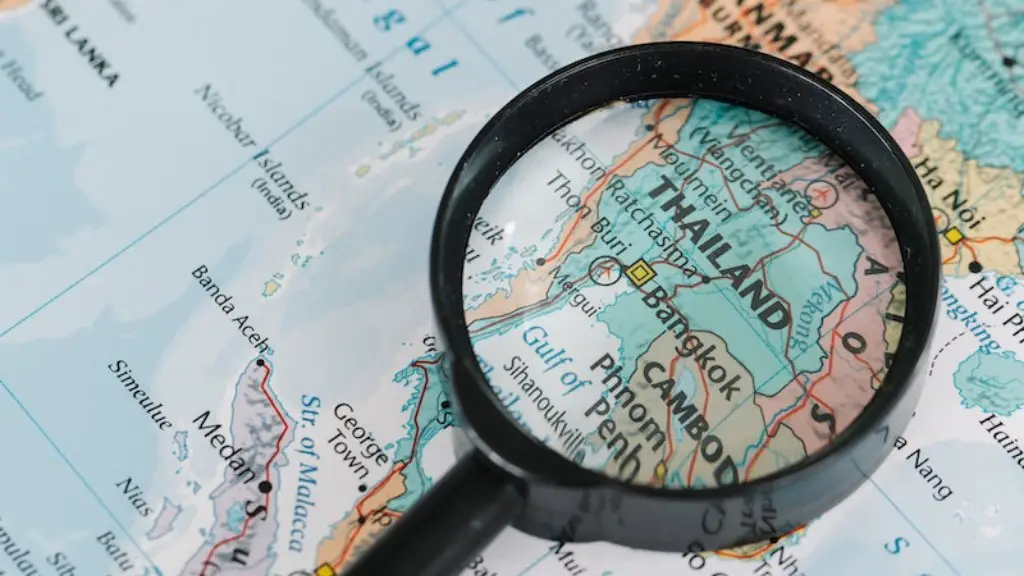When you’re planning a trip, the last thing you want to think about is what could go wrong. But travel insurance can help protect you from the unexpected. Travel insurance can cover things like lost baggage, trip cancellation, and medical emergencies. It’s important to compare different policies and find the one that’s right for you.
There are many companies that sell travel insurance, including Allianz, AIG, and Travelex. You can purchase travel insurance through most major airlines, travel agencies, and online.
Can I buy travel insurance anywhere?
There are a few things to keep in mind when shopping for travel insurance so that you can find the best policy for your needs. First, consider what type of coverage you need. Do you need comprehensive coverage for medical expenses, lost luggage, and trip cancellation? Or do you just need basic emergency medical coverage?
Once you know what type of coverage you need, you can start comparing policies. When comparing policies, be sure to look at the coverage limits, deductibles, and exclusions. You’ll also want to read the reviews to see what other customers have said about the company and the claims process.
Finally, don’t forget to compare prices. Travel insurance can be expensive, so you’ll want to make sure you’re getting the best value for your money. The best way to do this is to use a travel insurance comparison site that will allow you to compare policies from multiple companies side-by-side.
There are a few things to consider when choosing the best medical coverage for your travels. First, consider what type of coverage you need. Do you need comprehensive coverage for all medical expenses, or just basic coverage for emergencies? Second, consider the costs of the coverage. GeoBlue is a great option for comprehensive medical coverage, while Travelex and Allianz are great for basic coverage. InsureMyTrip and World Nomads are great for travelers who need comprehensive coverage but don’t want to break the bank. Finally, consider the customer service and claims process of the company you’re considering. Nationwide is a great option for those who want great customer service and a hassle-free claims process.
How much does travelers insurance cost
Travel insurance is an important consideration for any trip. The cost of travel insurance varies depending on the length and destination of your trip, as well as the level of coverage you desire. On average, travel insurance costs between 4-12% of your total trip cost. While this may seem like a significant expense, it is important to remember that an emergency situation can cost tens of thousands of dollars. Having travel insurance in place can help to minimize the financial impact of an unexpected event.
There are two basic types of travel insurance: Vacation Plans and Travel Medical Plans. Vacation Plans provide the most coverage, including trip cancellation. When people think of “travel insurance”, they are thinking of a Vacation Plan. Travel Medical Plans provide medical coverage while traveling abroad.
Can you buy travel insurance on your own?
If you’re planning a trip, you may be wondering if you should purchase travel insurance. The short answer is: Yes, you can. However, timing is everything when it comes to buying travel insurance — and some options won’t be available if you wait too long.
Here’s a look at buying travel insurance, the best times to purchase it and when it’s too late to get it.
When it comes to buying travel insurance, there are two main types: trip insurance and comprehensive travel insurance. Trip insurance covers you for specific reasons, such as trip cancellation, interruption or delay. Comprehensive travel insurance, on the other hand, covers you for a variety of things, including trip cancellation, interruption or delay, as well as medical expenses, lost baggage and more.
The best time to purchase travel insurance is usually when you book your trip. That’s because most policies will cover you for things like trip cancellation and interruption — but only if you purchase the insurance before you cancel or interrupt your trip.
However, there are some exceptions. For example, if you’re booking a long-term trip or an expensive trip, you may want to purchase travel insurance closer to your departure date. That’s because the closer you get to your trip
This is an important caveat to be aware of when considering travel insurance. Most policies will not cover any claims arising from incidents that occur while the policyholder is under the influence of drugs or alcohol. This includes accidents, injuries, and even theft or damage to property. So, if you plan on indulging in any substances while on your trip, be sure to do so responsibly and within the law, to avoid any potential complications.
What to look for when buying travel insurance?
When you purchase travel insurance, always make sure to include cover for medical expenses and repatriation in the event that you are injured or become ill while abroad. Additionally, personal injury and accident cover is important in case you cause damage to someone else or their belongings. And finally, lost or delayed baggage cover will reimburse you for any items that go missing during your trip.
When choosing a travel insurance policy, be sure to include the country (or countries) you are planning to visit. Consider how many trips you anticipate taking in a year; annual cover usually works out to be the best value if you are planning more than two trips. If you are only taking one or two trips, single-trip cover may be the more cost-effective option.
What are three types of travel insurance
Medical insurance is the most important type of travel insurance, as it can cover the cost of medical expenses if you become ill or injured while traveling.
Cancellation/interruption insurance can reimburse you for the cost of your trip if you have to cancel it due to an unforeseen event, such as a family emergency.
Luggage insurance can reimburse you for the cost of lost or damaged luggage.
Single trip cover is a great way to protect yourself from unexpected surprises when travelling. By taking out a policy as soon as you book your trip, you’ll be covered in case you need to cancel for any of the reasons specified in your policy. In most cases, a single trip policy will be cheaper than an annual policy, making it a great option for budget-conscious travellers.
What is usually covered by travel insurance?
A comprehensive travel insurance policy usually covers delays, cancellations due to sickness or death, lost luggage and some emergency medical costs. This can give you peace of mind when travelling, knowing that you are covered for a range of eventualities.
Travel insurance is not a legal requirement, but some countries now require visitors to have insurance that covers COVID-19. Other countries require insurance that covers all medical costs. The pandemic has prompted these changes to entry requirements.
How do you pay for travel insurance
If you’re planning a trip, you may want to purchase travel insurance to protect yourself in case of any unforeseen circumstances. You can purchase travel insurance through a travel agent, an insurance company, or a third-party website. Some credit cards also offer travel insurance as a benefit, so if you’re using a credit card to pay for your trip, check if you’re already covered.
Travel insurance is a form of insurance that covers you in the event of an emergency while you are traveling. This can include things like medical treatment, lost baggage, and cancellations. Health insurance, on the other hand, is primarily there to cover regular medical check-ups, rehabilitation, and ongoing medical aftercare usually within your home country.
How long does travel insurance last?
The length of your trip is one of the primary factors in determining a policy’s premium. Other factors include your total trip cost and the age of each traveler. Typically, these policies can last up one year, however it varies by policy.
There are a few things to keep in mind when buying last-minute travel insurance:
1. Make sure you understand the coverage. Read the policy carefully to make sure it covers what you need it to.
2. Check the exclusion list. Last-minute policies often have stricter exclusion lists than policies purchased in advance. This means that certain conditions or activities may not be covered.
3. Be aware of the risks. Buying last-minute insurance means you’re taking on more risk. If something goes wrong, you may not be covered.
4. Compare prices. Policies purchased last-minute are often more expensive than those bought in advance. Be sure to compare prices to get the best deal.
5. Know the deadlines. Some policies have strict deadlines for purchase. Make sure you know when the deadline is so you don’t miss it.
Conclusion
The best place to buy travel insurance is from a licensed insurance agent or broker.
There are many companies that sell travel insurance, so it is important to shop around and compare rates before buying a policy. Travel insurance can protect you from financial losses due to canceled trips, lost baggage, or medical emergencies while traveling. It is important to read the fine print of any policy before purchasing it, so you know exactly what is covered.





